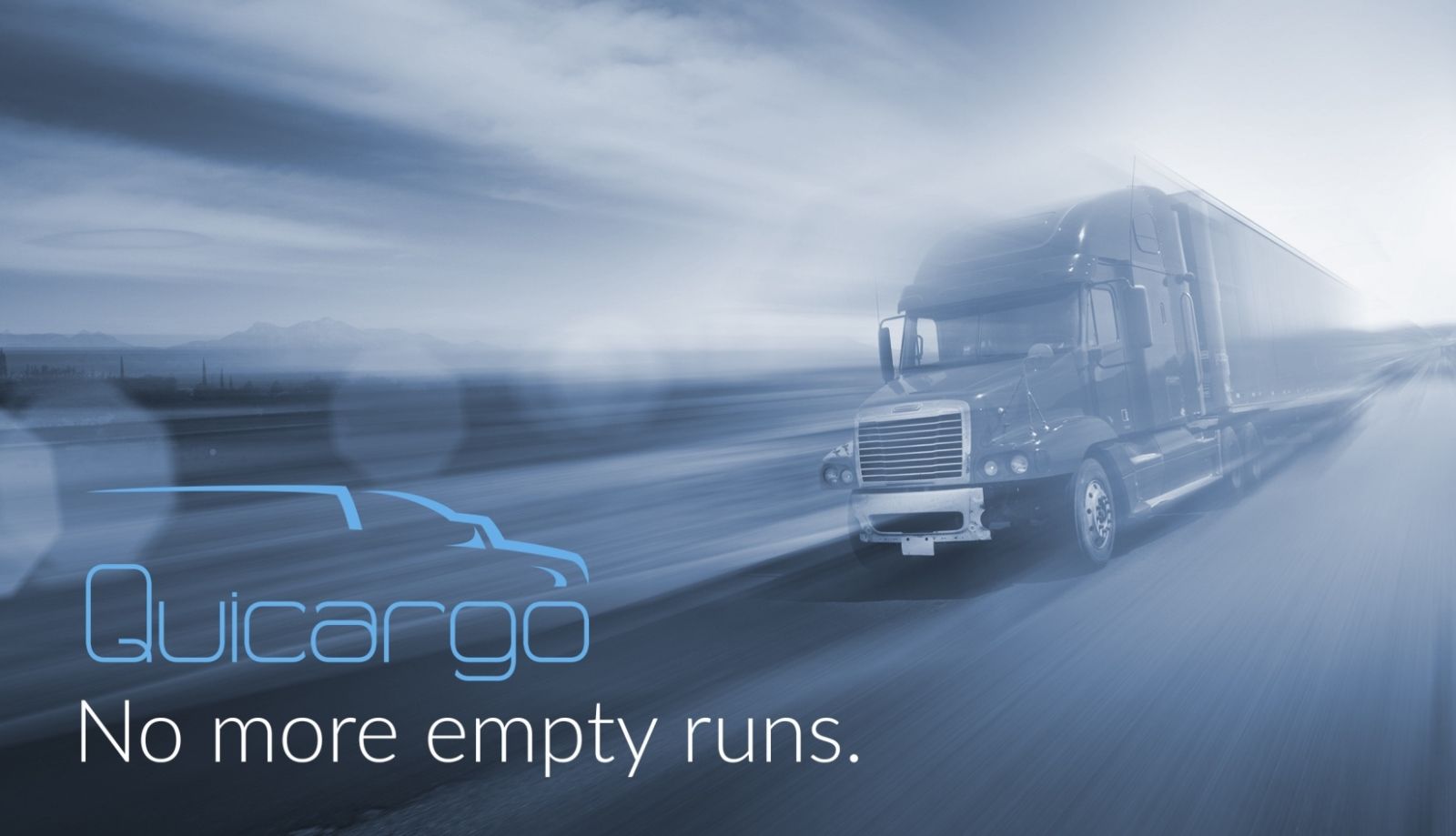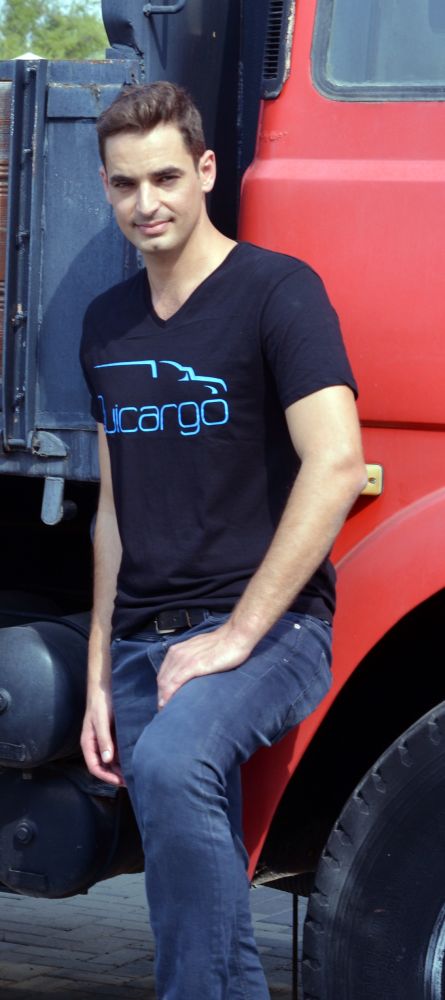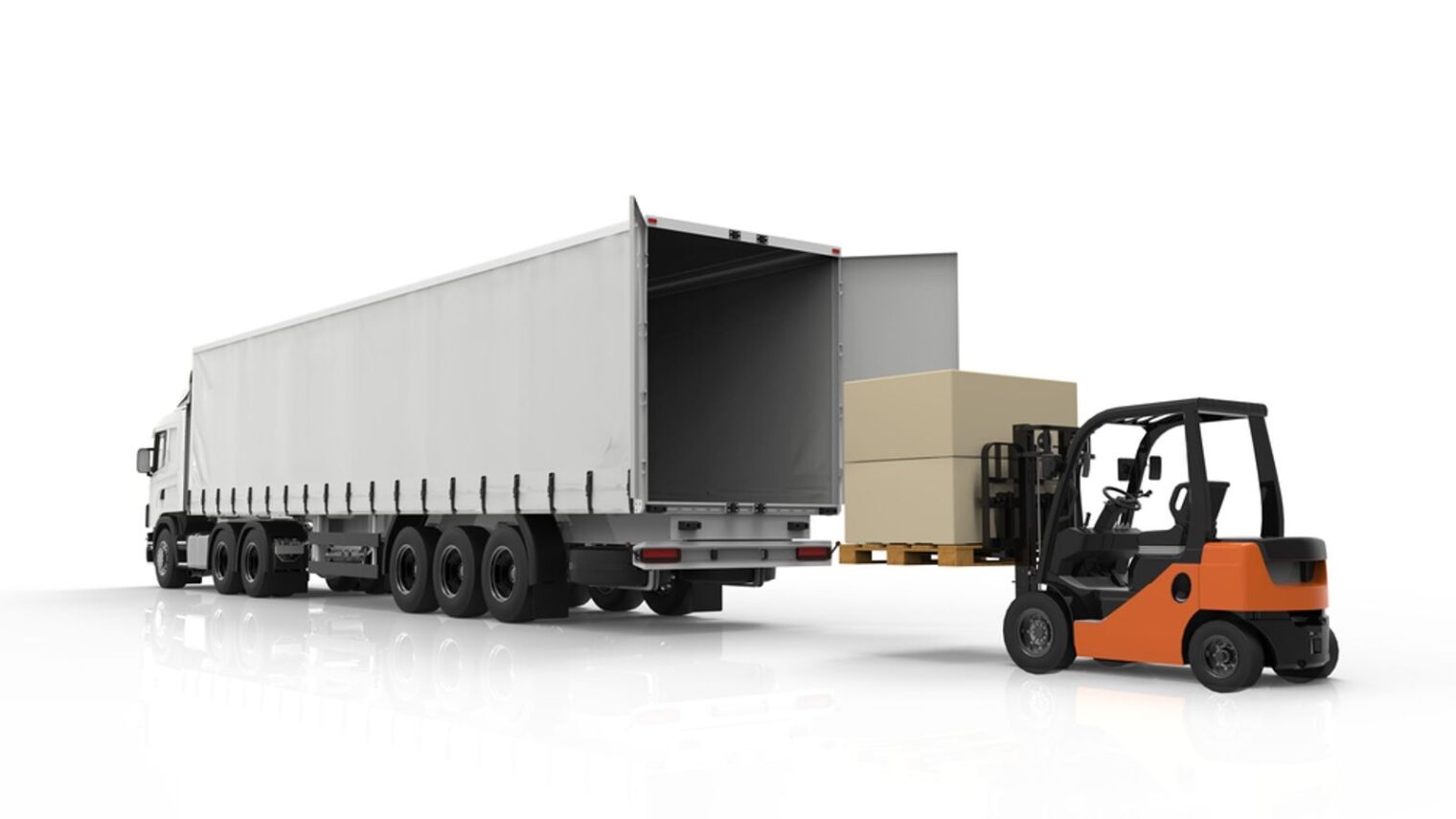Trucking fresh-picked produce from his family’s RT Fresh farm in the western Negev to other parts of Israel was no problem for Avishai Trabelsi. The problem was the return runs. Empty trucks on the road add up to a huge waste of fuel and manpower, as well as unnecessary air pollution and traffic.
So last February, Trabelsi resigned as CEO of the transportation arm of the business and recruited two partners to found Quicargo Technologies, offering an online marketplace for shippers and carriers to benefit from unutilized truck space.
Following a successful trial of the service in Israel, Trabelsi is seeking investors and strategic partners to introduce Quicargo in Europe as a high-tech solution for a widespread profit-sucking, gas-guzzling phenomenon in ground cargo transport.
“I saw that more than half the time my trucks were running empty,” he tells ISRAEL21c. “I’m paying salary and gas but not gaining any profit from the return trip. It made no sense. I saw it as a huge opportunity. If I could find a solution for the empty space, it would result in a net profit.”
Not finding any available solutions in the B2B sector, despite the obvious need, Trabelsi and his partners started working on a platform to take these empty spaces and sell them to businesses that need to transport goods in the direction the trucks are returning to home base.
https://youtu.be/dKkV8BIxJoU
It was not easy to build the platform, but Trabelsi says it’s easy to use. Using Quicargo’s website or Android app, the shipper enters the details and within seconds receives quotes from carriers with drivers in the area and available space to match the request.
In most cases, carriers with unused loading space can offer shippers attractive prices while realizing a profit on that otherwise wasted space, making it a win-win proposition.
After choosing the preferred carrier based on pricing, location and driver ratings, mutual contact information is provided and the shipper receives an SMS when the truck is approaching.
“After the driver arrives and picks up the cargo, you can track the trip on your smartphone and get notification of delivery via email and SMS, and then rate the driver for future deliveries,” says Trabelsi.

Payment goes directly to Quicargo, which sends it – minus a commission fee – to the carrier that provided the service. Shippers can become members, allowing for automatic payment, while non-members can use a credit card.
“The trucking industry is very low-tech,” Trabelsi says. “People are still using pen and paper to plan their shipping. But that also offers an opportunity for us to connect our technological solution to traditional business practices. I can take this platform anywhere in the world and adapt it according to local regulations. We love Israel, but it’s too small for our platform.”

Israel may be small, but its entrepreneurs think big in the shipping sector.
Last year, the Jerusalem-based startup Freightos became the world’s first online, automated freight network to optimize pricing and routing of cargo ships. Industry experts say this Expedia-like tool could increase a carrier’s profits by as much as 50 percent. In September, Freightos completed a $14 million funding round, bringing its total raised thus far to $23.3 million.
Trabelsi will be presenting Quicargo this fall at industry expos in Warsaw and Dublin. Europe is ripe for this service, as the World Economic Forum estimates the total cost burden of unutilized loading space in Europe to be approximately €160 billion.
“By increasing the productivity in the trucking industry and reducing empty runs, we can contribute to the global economy,” he says. “Moreover, we can be part of the ‘green’ evolution, by filling up empty trucks, reducing air pollution and carbon emissions.”
The company is headquartered on Moshav Tekuma, where the Trabelsi family’s RT Fresh fields and trucking company are located.
For more information, click here.

















